#mexican american literature
Text
Only Pieces by Edd Tello
Edgar wants nothing more than to live his life out loud. But telling the truth about his sexuality isn’t so easy in his traditional Mexican-American family, and his Amá has made it clear she won’t accept who he is. Things get even harder when Edgar’s macho father returns home after months away, and the house erupts into fighting and simmering tension. Edgar worries what would happen if he told…
View On WordPress
0 notes
Text

this semester's reads (spring '24)
#bookblr#book lover#diverse reads#diverse representation#my photos#my post#black representation#octavia butler#borderlands#latinx reads#english class#postcolonial decolonial literature#borders race and literature#classic reads#classic books#latine reads#english major#womens gender and sexuality studies#mexican american studies#english studies#books#books and reading#books and literature#university student#university studyblr
10 notes
·
View notes
Text
“ I can say my political consciousness began the moment I recognized my otherness. I was in a graduate seminar on memory and the imagination. The books required were Vladimir Nabokov's Speak Memory, Isak Dinesen's Out of Africa, and Gaston Bachelard's Poetics of Space. I had enjoyed the first two, but as usual I said nothing, just listened to the dialogue around me, too afraid to speak. The third book, though, left me baffled. I assumed I just didn't get it because I wasn't as smart as everyone else, and if I didn't say anything, maybe no one else would notice.
The conversation, I remember, was about the house of memory—the attic, the stairwells, the cellar. Attic? My family lived in third-floor flats for the most part, because noise traveled down.
Stairwells reeked of Pine Sol from the Saturday scrubbing. We shared them with the people downstairs; they were public zones no one except us thought to clean. We mopped them all right, but not without resentment for cleaning up some other people's trash. And as for cellars, we had a basement, but who'd want to hide in there? Basements were filled with urban fauna. Everyone was scared to go in there including the meter reader and the landlord. What was this guy Bachelard talking about when he mentioned the familiar and comforting house of memory? It was obvious he never had to clean one or pay the landlord rent for one like ours.
Then it occurred to me that none of the books in this class or in any of my classes, in all the years of my education, had ever discussed a house like mine. Not in books or magazines or films. My classmates had come from real houses, real neighborhoods, ones they could point to, but what did I know?
When I went home that evening and realized my education had been a lie—had made presumptions about what was "normal," what was American, what was valuable—I wanted to quit school right then and there, but I didn't. Instead, I got angry, and anger when it is used to act, when it is used nonviolently, has power. I asked myself what I could write about that my classmates could not. I didn't know what I wanted exactly, but I did have enough sense to know what I didn't want. I didn't want to sound like my classmates; I didn't want to keep imitating the writers I had been reading. Their voices were right for them but not for me.
Instead, I searched for the "ugliest" subjects I could find, the most un-"poetic"—slang, monologues in which waitresses or kids talked their own lives. I was trying as best I could to write the kind of book I had never seen in a library or in a school, the kind of book not even my professors could write. Each week I ingested the class readings and then went off and did the opposite. It was a quiet revolution, perhaps a reaction taken to extremes, but it was out of this negative experience that I found something positive: my own voice. “
Sandra Cisneros, The House on Mango Street; 1st edition: Arte Público Press, Houston, Texas, USA, 1984. [Excerpt from author’s introduction to 1993 edition]
#Sandra Cisneros#The House on Mango Street#novels#self#American literature#quotes#Chicanos#Chicago#feminism#Mexican-American culture#identity#otherness#imagination#political consciousness#memory#memories#Isak Dinesen#Gaston Bachelard#Vladimir Nabokov#books#quote#poor#impoverished neighborhood#adolescence#girls#discovery#first-person narrative#working-class people#education#school
99 notes
·
View notes
Text
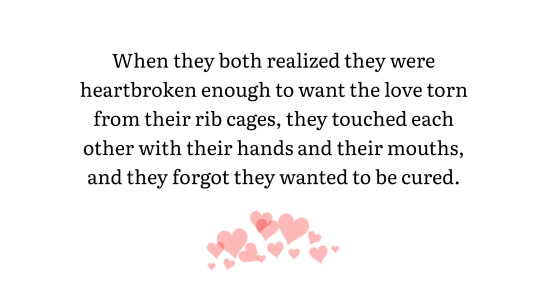
–Anna-Marie McLemore, When the Moon Was Ours
#book quote of the day#anna marie mclemore#when the moon was ours#Valentine's day reading recs#magical realism#ya books#bipoc representation#lgbtqia+ literature#transgender protagonist#pakistani protagonist#latinx protagonist#mexican-american author#James Tiptree Jr Award winner#Stonewall Honor Award winner#young adult fantasy#romance books#own voices#gorgeously written#book recommendations
24 notes
·
View notes
Text
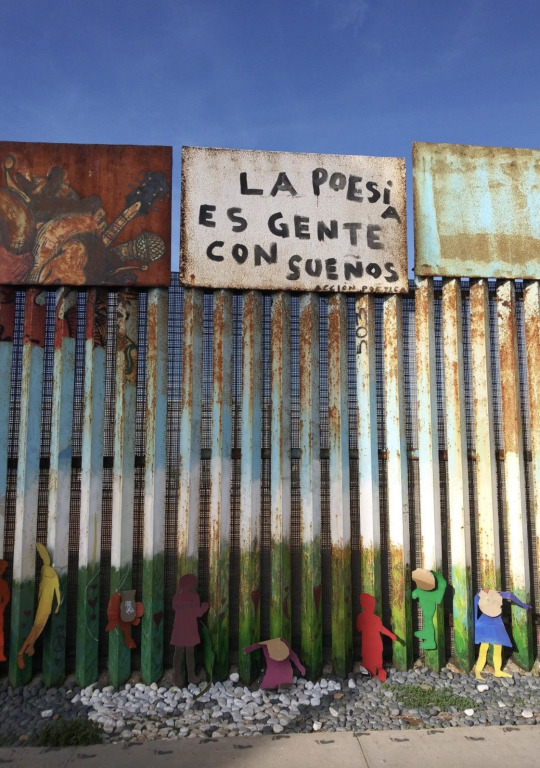
How can poetry relay the Mexican-American experience? In my opinion, literary media such as short stories or written poetry can be one of the best forms to encapsulate the realities of the diaspora.
But why do I think that? Well first, let's identify some common themes that characterizes Mexican-American poetry.
Cultural Expression and Identity: Mexican-American poets use poetry to express the richness of their cultural identity (Noel 160). Poets can draw on traditions, customs, folklore, and historical events to create a tapestry that reflects heritage (Noel 160). Through vivid imagery and symbolism, poets such as Sandra Cisneros convey the essence of Mexican/Mexican-American culture and its impact on sense of self.
Exploration of Gender: Mexican-American poets like Cisneros explore gender dynamics within the community. Poetry addresses traditional expectations, stereotypes, and the evolving roles of men and women (Mayock 223). Poetry becomes a medium for challenging cultural norms, creating a space for reflection on the complexities of gender identity within the context of both Mexican and American cultures (Mayock 224).
Migration and Displacement: The theme of migration is also central to many Mexican-American poems/poets. Poets like Cisneros can really capture emotions in the journey of leaving one's home, challenges of adapting to a new culture, and nostalgia for the motherland (Pearce 206). Through poetry, Mexican-American poets can share their narratives, which highlight the resilience needed in order to navigate the complexities of migration (Pearce 208).
5 notes
·
View notes
Text
I am the strongest woman I have ever met.
#dark acadamia quotes#love quotes#poetry#love poetry#affirmations#affirmyourreality#affirmyourself#nature#books and literature#fempreneur#ancestors#indigenous#mexican american#quotes#self love journey#selflovequotes#self love#recovery#ancestral healing#indigenous women#i love her#love poem#i love you#lovecore#repeat after me
31 notes
·
View notes
Text
book reviews by aiden
title: Aristotle And Dante Discover The Secrets Of The Universe
author: Benjamin Alire Sanez
year: 2012
type: YA / coming of age / LGBTQ
2 sentence summary: starting in the summer of 1987, 15 year old aristotle mendoza meets interesting and outspoken dante quintana at the local pool. the story follows the two boys as they grow over the next few summers, their friendship, and their love.
my vibe: hands down one of the best books ive ever read. a huge shout out to the mexican american and lgbtq community, teenagers, and anyone wanting a dreamy adventure. it’s warm and moody, putting you directly in this small texan town. this book haunts you in the best possible way. life changing.
tws: mentions of death, homophobia, transphobia, and mentions of violence
stars: ★★★★★★★★★☆ 9.5/10
i- i really love this book. the representation, the atmosphere… everything. it’s very intelligently written but it has this dreamlike quality that absolutely enamoured me. you come to know and understand ari so much throughout the course of this book, as if youre there living in his life. that level of character development is something i rarely see in books.
keywords: race, etnicity, sexuality, lgbtq, mexican american, coming of age, YA
#book reviews by aiden#aristotle and dante#aristotle and dante discover the universe#aadditwotw#aaddtsofu#ari and dante#queer history#queer books#lgbtq books#lgbtq representation#mexican american#mecican american representation#books and literature#book reviews#writers on tumblr#writing#gay books#bookshelf#readblr
8 notes
·
View notes
Text
Vickie Vértiz: I’m both in Mesoamerican times — as someone who practices Aztec dance, and has a belief system built with syncretism, and also as a professor of Chicanx Studies is like taking apart Mexican identity via Mexican nationalism, and a child of the 80s as a queer person, and someone who worked grew up working class who loves things that have existed for a long time, and who likes to reuse them. I’m the scholar, of my memory, but also a kind of collective memory of people in my generation, but also folks who continue to face these questions and are looking for these answers about being a queer person of color, being a femme being an immigrant daughter. What does it mean to have a desire — agency over your desire — as a Mexican American woman or femme queer person in this world, and a lot of those questions are timeless. Unfortunately, fortunately? And so I have a map that’s at different planes of time I’m trying to draw. And I’m a scholar of like, my family, myself, my community and I’ve seen these themes just come up over and over and over again.
Q&A with Vickie Vértiz, author of Auto/Body
#the offing#q&a#author interview#literature#poetry#poet#vickie vertiz#mexican american#chicanx#latinx#latinx writers#queer poet#queer writers#lgbtq
4 notes
·
View notes
Note
have you ever read aristotle and dante discover the secrets of the universe? its quite cool :)
I have! I haven't read the sequel yet, but I intend to at some point. I'll have to borrow it from my sister; I own the first book and she owns the second.
I thought it quaint and enjoyable, a sweet quick read. Of course I loved having queer mexican american main characters, as I'm a queer mexican american. Though I grew up a little to the left geographically, so some differences there--the decade as well. Ari had an amusing internal voice and narration given how dry and morose he was.
Not what I usually read, but pleasant nonetheless! I think I'll have fun with the sequel too :)
#aristotle and dante discover the secrets of the universe#aaddtsotu#damn what an acronym#quil's queries#nonsie#we also read some snippets of it in a chicano studies class I took once#which. I think was very much influenced by the fact the professor was a gay mexican american from texas as well#we read a handful of queer mexican american writing excerpts#there's one in particular that was like. from the 1970s or something? maybe not but point was it was older queer literature#but I can't recall the name#just the feeling#someting with night in tthe title?#FOUND IT!!!#city of night by john rechy#ty internet keyword search <3#i was a little off it was 1960s
5 notes
·
View notes
Text
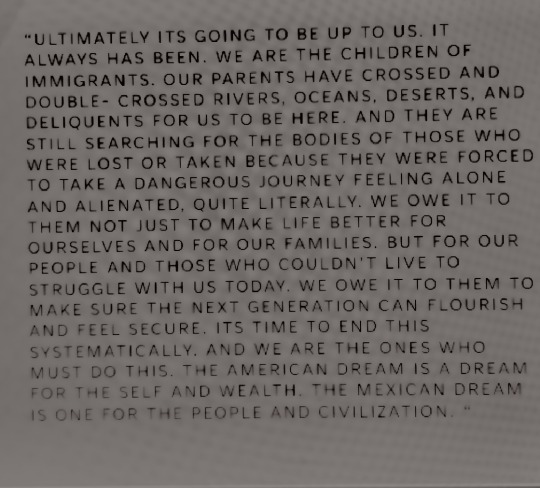
While making my business PowerPoint, I created a quote of perfection.
-A.F
#gen z post#gen z quotes#mexican american#chicana#first generation#mexican#educada#writing#poems and quotes#quotes#poetry#literature#immigrants#immigrant#mexico
5 notes
·
View notes
Text
Fans of Gothic Horror literature, heres a book recommendation
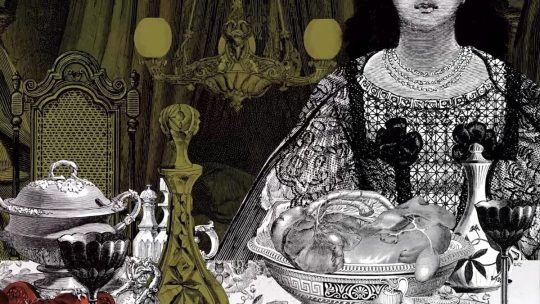
I really REALLY recommend Aura by Mexican novelist Carlos Fuentes. This short novel is one of my favorite pieces of literature of all time, and its encapsulates gothic horror in a way that rivals Edgar Allan Poe, and this is coming from a giant Poe fan. Its creepy and eerie, feels like a foggy dream but also highly detailed and descriptive of the setting. The fact it’s written in second person really takes it to a new level. It leaves you as confused as the protagonist while simultaneously removing any sense of control and free will you thought you had entering the story. It really feels as if you’re being dragged around and controlled like a puppet by an unknown master.
The novel was originally written in Spanish but theres a bilingual version as well, and since it was written back in the 60′s I’m pretty sure there has to be a free pdf file somewhere if you don’t want to buy it. That being said heres some of book covers.
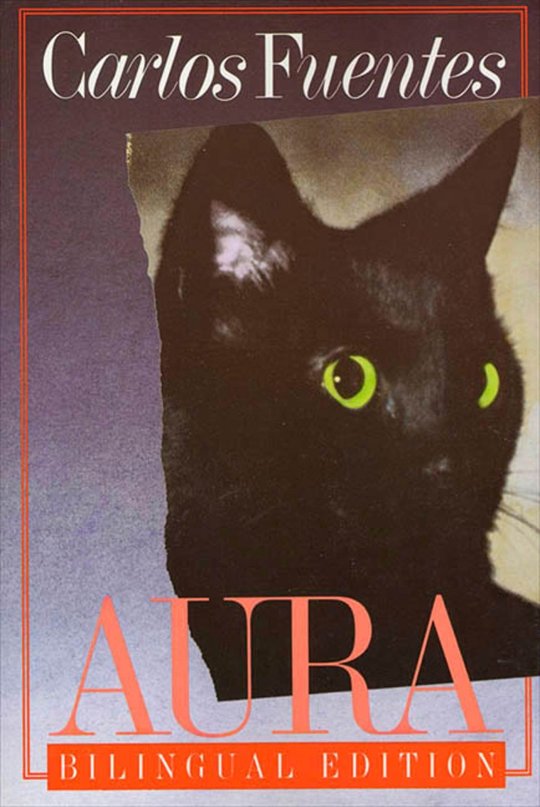
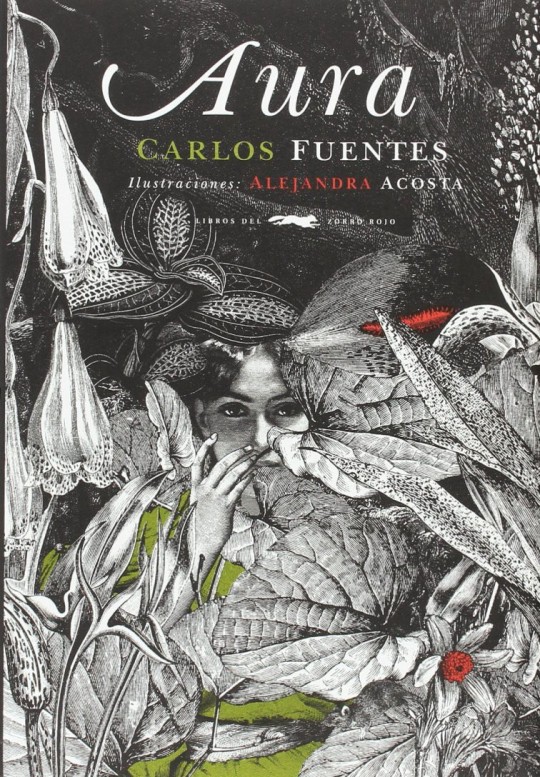
Thank you for reading my little love letter to my favorite book.
#I do think many ppl from the states are sleeping on latin american and spanish literature#theres so many surreal and morbid gems#Aura#carlos fuentes#gothic horror#gothic literature#reading recommendations#mexican literature#thoughts and rambles
18 notes
·
View notes
Text
" They always told us that one day we would move into a house, a real house that would be ours for always so we wouldn't have to move each year. And our house would have running water and pipes that worked. And inside it would have real stairs, not hallway stairs, but stairs inside like the houses on TV. And we'd have a basement and at least three washrooms so when we took a bath we wouldn't have to tell everybody. Our house would be white with trees around it, a great big yard and grass growing without a fence. This was the house Papa talked about when he held a lottery ticket and this was the house Mama dreamed up in the stories she told us before we went to bed.
But the house on Mango Street is not the way they told it at all. It's small and red with tight steps in front and windows so small you'd think they were holding their breath. Bricks are crumbling in places, and the front door is so swollen you have to push hard to get in. There is no front yard, only four little elms the city planted by the curb. Out back is a small garage for the car we don't own yet and a small yard that looks smaller between the two buildings on either side. There are stairs in our house, but they're ordinary hallway stairs, and the house has only one washroom. Everybody has to share a bedroom—Mama and Papa, Carlos and Kiki, me and Nenny.
Once when we were living on Loomis, a nun from my school passed by and saw me playing out front.
The laundromat downstairs had been boarded up because it had been robbed two days before and the owner had painted on the wood YES WE'RE OPEN so as not to lose business.
Where do you live? she asked.
There, I said pointing up to the third floor.
You live there? There. I had to look to where she pointed—the third floor, the paint peeling, wooden bars Papa had nailed on the windows so we wouldn't fall out. You live there? The way she said it made me feel like nothing. There. I lived there. I nodded.
I knew then I had to have a house. A real house. One I could point to. But this isn't it. The house on Mango Street isn't it. For the time being, Mama says. Temporary, says Papa. But I know how those things go. "
Sandra Cisneros, The House on Mango Street; 1st edition: Arte Público Press, Houston (TX), USA, 1984.
#Sandra Cisneros#novels#self#Chicanos#feminism#books#The House on Mango Street#American literature#displacement#Mexican-American culture#identity#otherness#imagination#Chicano literature#Chicago#esperanza#coming-of-age#life#cultural consciousness#memories#adolescence#community#first-person narrative#working-class people#family#poverty#Mexican-Americans#pobreza#quote#girls
3 notes
·
View notes
Text
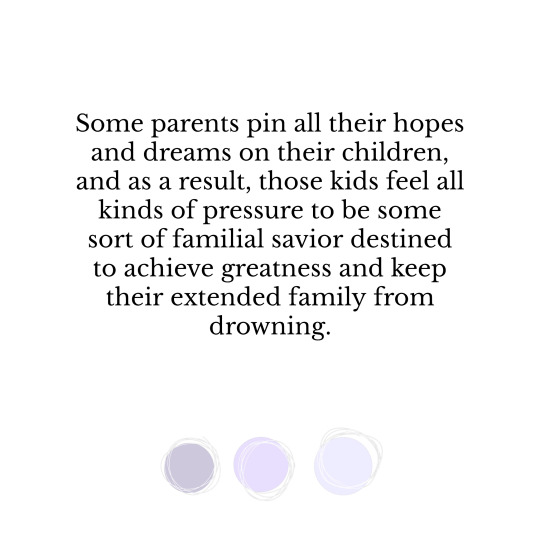
– Aaron H. Aceves, This Is Why They Hate Us
#book quote of the day#aaron h aceves#this is why they hate us#ya#lgbtqia literature#mental health#family#Mexican-American author #hispanic heritage month#book quotes#book recommendations
11 notes
·
View notes
Quote
For once, I understood what my grandma used to say about happiness. She'd say that it came from breathing air that escaped from a tiny hole in heaven. But if you breathed too much of it, you became sick with the desire to go there, and you couldn't live your life properly.
Victor Martinez, Parrot in the Oven: Mi Vida

Art by Kawase Hasui
#victor martinez#mexican literature#American literature#literature#memoir#children's books#books#books & libraries#quotes
2 notes
·
View notes
Text
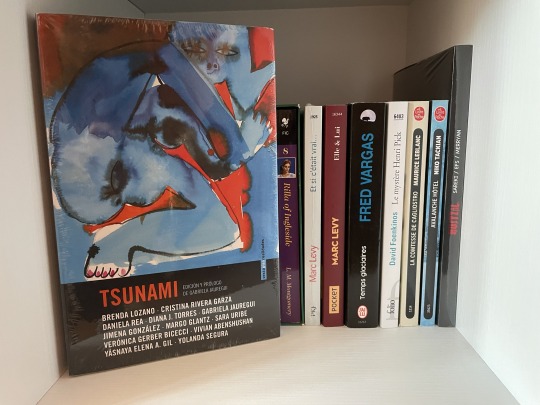
JOMP Book Photo Challenge
May 18: Newest Book
#jompbpc#justonemorepage#book photo challenge#tsunami#latin american literature#cristina rivera garza#margo glantz#sara uribe#brenda lozano#mexican literature#books by women#read women#feminism#leerreadinglire
9 notes
·
View notes